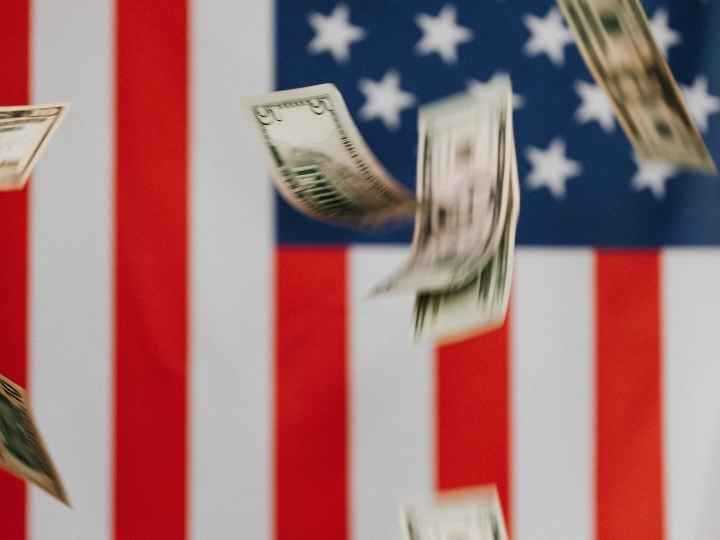
Current economic trends concern many Texans, according to a report released today from the University of Houston and Texas Southern University. How individual survey participants saw inflation expectations was heavily influenced by their income level and political allegiance, the study showed.
In the “Texas Trends 2022 – Inflation Expectations” survey, the UH Hobby School of Public Affairs and the TSU Barbara Jordan–Mickey Leland School of Public Affairs found almost half (45.6%) the survey’s respondents predicted significant price increases will continue over the next decade. By comparison, fewer than a quarter (22.8%) saw inflation being resolved over the next decade.
The statistics suggest many households may be expecting to stare down a money crunch.
“Only 12.9% of participants in the survey believed their income next year will outpace inflation. At 87.1%, the clear majority expected their purchasing power to diminish, especially for food, gas and electricity,” said Agustín Vallejo, post-doctoral fellow at the UH Hobby School of Public Affairs.
But not all survey participants saw themselves on the losing end of inflation. Opinions could be divided along several distinctions, including income and political affiliation.
“Expectations were sharply different when you looked at households’ income levels. Most respondents earning less than $39,999 expected inflation to grow faster than their salaries will keep pace. But the majority of those earning more than $200,000 believe their purchasing power will grow, cancelling the pain of price rises,” said Pablo Pinto, director of the Center for Public Policy and professor at the UH Hobby School of Public Affairs.
Divisions along political affiliation were noted, too. In general, most respondents who identified themselves as Republican negatively viewed the balance of inflation versus income. But most respondents who identified as Democrat were more optimistic in their predictions, with a majority believing inflation will level off and salaries will at least keep pace.
“This is not a surprise, actually. History suggests the same pattern manifests according to which political party has majority control in the country. With President Biden being a Democrat, the theory expects the opposing party – Republicans, currently – to feel the country is heading off course and economic worries are ahead,” said M.C. Sunny Wong, professor at the UH Hobby School of Public Affairs.
The theory held true when Barack Obama, a Democrat, was in the White House. “Studies then showed more people in Republican-dominated states expected inflation to build with a Democrat as president. But when Republican Donald Trump was elected, Democrats became the pessimists about inflation. It seems to be the way history unfolds,” said Carroll G. Robinson, associate professor of political science at Texas Southern University.
More analyses of these and related issues are covered the “Texas Trends 2022 – Inflation Expectations” report. A brief look at the statistics follows.
By the Numbers
One-year outlook. Overall, survey respondents believed inflation would average around 8.6% at the end of 12 months. Highest price increases were anticipated for the energy sector (electricity, gasoline, etc.), at 9.3%. Expected rises in food prices came second, at 9%, with an average of 8.6% for all other items.
Over the next decade. More than twice as many (45.6%) respondents thought inflation will rise over the next five to 10 years, compared to those (17.5%) who saw inflation staying the same or even decreasing.
Partisan differences. When asked the level of general inflation they expected over the next 12 months, most Republican survey participants predicted 9.5%. Most Democrats said 7.8%.
Income growth. A majority (87.1%) believed their real income, as measured by purchasing power, will decrease over the next 12 months. Only 12.9% believed their income would grow faster than inflation.
Sharp divisions in these numbers were noted by income level – 22.4% of top earners ($200,000+ per year) predicted increases in their income. Only 12.2% earning less than $39,999 expected their incomes to keep pace, especially in areas of food and energy.
About the Survey
“Texas Trends 2022 – Inflation Expectations” is this year’s fifth contribution to the Texas Trends project, a five-year collaboration of the University of Houston and Texas Southern University that has been measuring shifts in Texas opinions since 2021.
Previous 2022 reports looked at school safety, the Nov. 8 general election’s state races, the Nov. 8 ballot for Harris County judge, and the issue of gun safety. Two Texas Trend reports, examining criminal justice and health care, will follow.
Data for the “Texas Trends Survey 2022 – Inflation Expectations” survey was fielded Aug. 11–29, 2022, by YouGov from 2,140 respondents 18 and older, representing Texas’ adult population of white, Black, Latino and Asian residents. The survey, conducted in English and Spanish, has a confidence interval of +/-2.1.